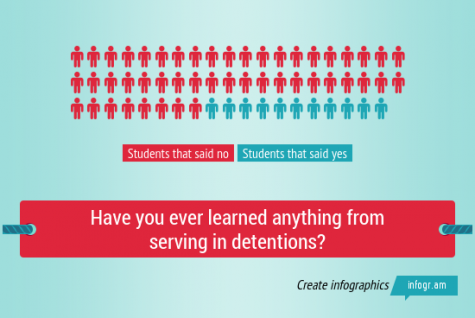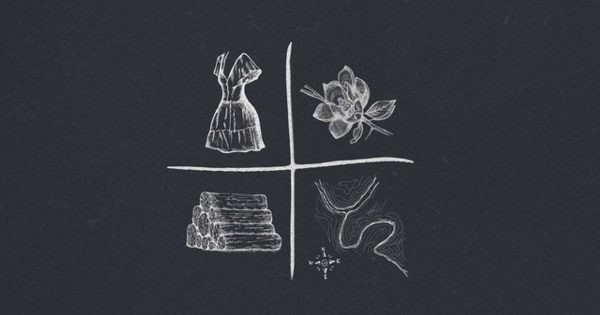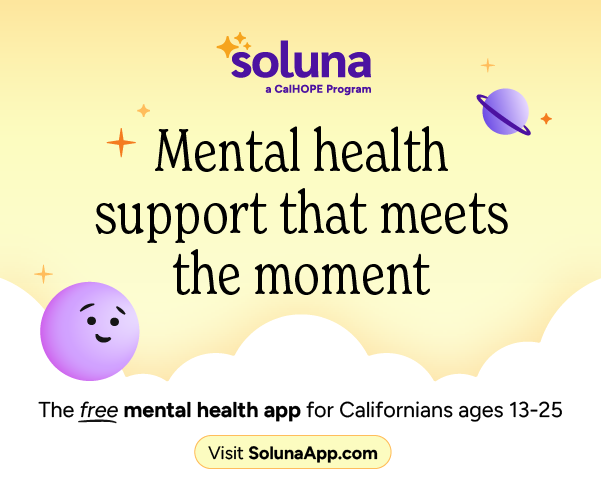No lesson in detention
Detentions cannot be a school’s first solution for punishment.
My heart pounds as I walk out into the lunch shelter. I look to my left and right, dodging deans and watching students all around me get stopped for breaking dress code. Just when I think I have a 360 degree vision of my surroundings, I run straight into the foreboding notepad of detention slips with one just waiting to have my name on it.
Even though I could try to argue my way out of it, I take the detention because I know my actions will have consequences. However while being written up, I already picture myself in the detention, dazing off into space, completely ignoring the whole purpose of my punishment.
 This format of detentions just isn’t cutting it anymore. There’s times when I walk into Saturday schools with about 30 kids packed in one room all to serve the same penalty. And for what? To sit there for an hour — maybe three?
This format of detentions just isn’t cutting it anymore. There’s times when I walk into Saturday schools with about 30 kids packed in one room all to serve the same penalty. And for what? To sit there for an hour — maybe three?
Students break dress code or the code of conduct, and the only form of reprimand given is a contest to see who can sit still the longest. We stare at white walls for hours on end, with no lesson learned.
“When teachers or deans give detentions I feel like they’re writing off our time like it’s unimportant,” said senior Rachel Williams. “Being at a highly competitive school, students don’t have the time to go and serve a detention to not learn anything.”

Caught in the act – Dean Jill Hegna demonstrates a detention-worthy dress code offense with an SMCHS student.
These unrealistic time constraints from detentions aren’t proven to teach teens anything. I don’t understand most of the time why things like a too short skirt or chewing gum are wrong, and with the current format of detentions nobody is there to tell me. By establishing an understanding between the authority issuing the detention and the student, we would be less prone to getting them.
“Every time I go to detention I see the exact same kids in there for the same reasons,” Williams said. “I think a more constructive form of punishment like helping around school would actually help the students learn their lesson.”
Psychology proves punishment to be the most unreliable form of behavior modification. To replace that negative stigma, schools could easily change to more positive reinforcement by rewarding good behavior instead of focusing on the bad. Little awards can be given by the deans who see students doing simple acts of kindness like picking up trash or helping someone with their books.
“I think they should take advantage over all that time we spend not doing anything and use it to teach us something,” said junior Noelle Bannigan. “Alternatives could include after school clean up or just even assisting in the library because that’s the only way to get through to teens.”
If students are occasionally rewarded for kind conduct and are punished for bad conduct in ways that enable them to help around campus, doing good deeds will eventually grow into a natural habit.
There is a very limited number of things students are allowed to do in detention, and reading the Bible is one of those options. By only allowing the students to read the Bible during their state of boredom, advisers are attaching the negative association of detention to the act of reading and religion.
“Detentions really aren’t serving the purpose that our school wants them to serve,” said senior River Crawford. “It’s pretty clear that these practices are not working when there’s a film made called The Breakfast Club which is basically about the pointlessness of detentions.”
Detention has become an official form of punishment at SMCHS and schools throughout Orange County. By talking to the student being penalized for their actions, bringing in healthy alternatives of positive reinforcement and developing new forms of after school service for punishment, SMCHS authorities will be able to establish a stronger bond with their students. If advisers can teach students to develop good behavior without the use of these detrimental detentions, only then will the outcome be the positive change we all wish to see.










